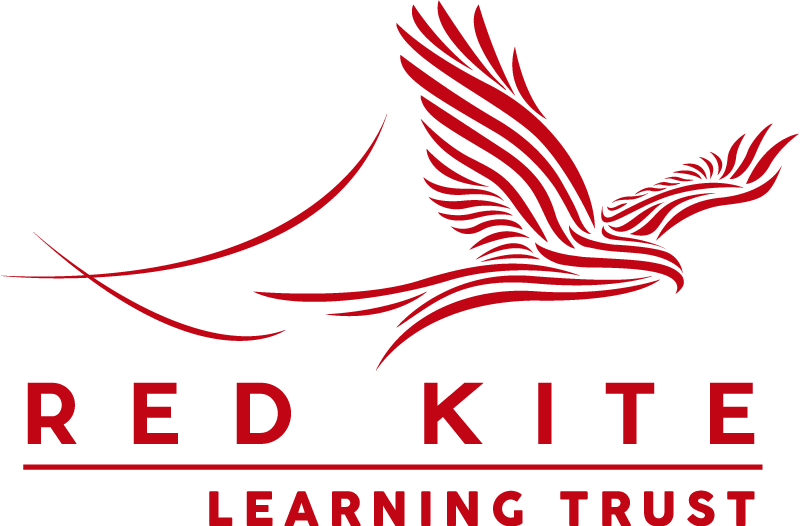‘Whistleblowing’ Procedure
INTRODUCTION AND SUMMARY
Rossett School wishes to create and sustain an atmosphere of openness, fairness, equal opportunities and to conduct affairs in a transparent way so that employees can raise legitimate concerns without fear of reprisal. 'Whistleblowing' is the term commonly used to describe the procedure by which an employee publicly discloses suspected wrongdoing.
This Whistleblowing Procedure aims to ensure that employees feel able to raise issues internally in the first instance. Wherever possible, the School would wish to be able to resolve such issues internally with the minimum of damage or embarrassment to the School’s good name.
The purpose of this procedure is:
- to provide a channel and process for individuals to raise genuine and legitimate concerns about fraud or malpractice;
- to enable those concerns to be dealt with seriously and urgently
- to demonstrate the School’s commitment to combating fraud, corruption and malpractice, whether the perpetrators are internal or external to the School.
- The Public Interest Disclosure Act exists to protect employees who use the Whistleblowing Procedure. An employee cannot therefore be disciplined for making a disclosure if
- the procedure has been followed; and
- the employee has acted in good faith and not for personal gain or out of personal motives.
- If an employee uses the Whistleblowing Procedure to pursue a malicious or vexatious claim against another employee then the disciplinary procedure may be invoked. The Whistleblowing Procedure is not to be used for raising grievances about individuals' employment concerns. The School’s Grievance Policy should be followed in such cases.
- This policy will be circulated annually by email to all staff and will be available in the online Staff Shared Area.
MALPRACTICE
- The Whistleblowing Procedure should only be used where malpractice is suspected. The types of matters regarded as 'malpractice' are as follows:
- Fraud or financial irregularity
- Corruption, bribery or blackmail
- Criminal offences
- Failure to comply with a legal or statutory obligation
- Miscarriage of justice
- Endangering the health or safety of any individual, or the environment
- Improper use of authority
- Serious financial maladministration arising from deliberate misconduct
- Concealment of any of the above
- Where the school is believed to be acting outside the power accorded to it by the Instrument of Governance and Articles of Association of the School
HOW SHOULD A CONCERN BE RAISED?
- Rossett School encourages any employee, agency contract worker, or student (the “Discloser”) to raise matters internally in the first instance to allow those school staff and Trustees in positions of responsibility and authority the opportunity to right the wrong and give an explanation for the behaviour or activity.
- Rossett School has designated the following individuals to specifically deal with such matters.
- Mrs Anne Alderman
Rossett School
Green Lane
Harrogate
HG2 9JP
Email: AnneAlderman@rossettschool.co.uk
Tel: 01423 564444 EXT 323 - John Hesketh
Trustee
Email: jhesketh@rossettschool.co.uk
Tel: Number available from Anne Alderman
- Mrs Anne Alderman
- Any disclosure under this procedure should, wherever possible, be in writing. However, oral disclosures may be made at the choice of the Discloser. The Discloser should provide as much supporting evidence as possible about the disclosure and the grounds for the belief of malpractice.
- On receipt of the disclosure the designated individual will offer to interview the Discloser in confidence, as soon as practicable. The purpose of the interview will be to obtain as much information as possible from the Discloser about the grounds of the belief of malpractice and to consult with the Discloser about further steps which could be taken. The Discloser may be accompanied by a local trade union representative or work colleague at the interview. The designated individual may be accompanied by a note taker.
- If a disclosure is oral, the designated individual will (during interview with the Discloser) take full written notes about the alleged malpractice and will seek to agree with the Discloser that the notes are a correct record.
- The designated individual may decline to become involved on reasonable grounds including: possible previous involvement or interest in the matter, incapacity, unavailability, or if the designated individual believes that another member of staff would be more appropriate to consider the matter.
- The designated individual will acknowledge receipt of the concern within five working days of receiving it. An estimated completion date will be given and updates will be provided as and when necessary. Unless agreed otherwise with the Discloser, any correspondence will be sent to the Discloser's home address.
- In the event that either designated individual is unavailable due to holidays or part time working this will be notified via out of office email or telephone answerphone and when the Whistleblowing Policy is circulated annually.
- If an anonymous disclosure is received at the School it should be forwarded to the designated individuals who will have responsibility for assessing the seriousness of the allegation, the credibility of the concern and the likelihood of confirmation of the allegation. The disclosure will be logged, monitored and reviewed by the designated individuals in line with the procedure.
FURTHER ACTION
- As soon as practicable (and normally within five working days) after the interview the designated individual will report to the Headteacher and Chair of Trustees. The Headteacher or Chair of Trustees will recommend what further steps should be taken. Such recommendations may (without limitation) include one or more of the following:
- that the matter should be reported to the police;
- that the matter should be reported to the Education & Skills Funding Agency (ESFA), the DfE or other appropriate public authority;
- that the matter should be investigated either internally by the School or by the appropriate Sub-Committee of the Trustees and/or by external or internal auditors or investigators appointed by the School;
- that a member of staff should be given the opportunity to seek redress through the School’s grievance or other internal procedures relating to staff.
- The grounds on which the Headteacher, or Chair of Trustees if appropriate, may recommend that no further action by the School should be taken are as follows:
- that they are satisfied that the Discloser does not have a reasonable belief that malpractice has occurred, is occurring or is likely to occur; or
- that they are satisfied that the Discloser is not acting in good faith; or
- that the matter concerned is already the subject of legal proceedings, or has already been referred to the police, the ESFA, the DfE or other public authority; or
- that the matter is already (or has already been) the subject or proceedings under one of the School’s other procedures relating to staff or students.
- The Headteacher or Chair of Trustees will make any recommendations for action to the Board of Trustees. The recommendations will be made without revealing the identity of the Discloser, subject to the Safeguards section below. The Headteacher, or Chair of Trustees as appropriate, will take all steps within their power to ensure the recommendations are implemented. [If the Headteacher decides not to implement fully any such recommendations that decision will be notified in writing to the Chair of Trustees as soon as practicable, together with the reasons for it.]
- Once the Headteacher or the Chair of Trustees, have decided what further steps (if any) should be taken, then the designated individual will inform the Discloser of the decision. The designated individual will determine the level of information that is to be conveyed to the Discloser. If no further steps by the School are proposed, the designated individual will give the reasons for this.
- The designated individual will conduct a risk assessment to determine whether it is appropriate for the alleged person to be notified of the allegation against them. If an allegation relates to a potentially criminal offence, such as fraud, then advising the alleged person without due consideration could have the potential to jeopardise any criminal investigation or result in the destruction of evidence.
- If the designated individual decides that the matter is to be investigated internally, an investigation officer will be appointed and the alleged person will be notified of the allegations against them at the appropriate time, in line with the School Disciplinary Policy.
- All disclosures will be recorded and logged in a central log file, which will be held securely by the designated individual. The designated individual will be responsible for monitoring the progress of disclosures as per the procedure.
- If the Discloser is not satisfied that his/her concern has been properly addressed, the Discloser will have the right to raise his/her concern in confidence with the Chair of Trustees. This should be made in writing addressed to the Chair of Trustees at the school address.
- The School may revoke any such designation from time to time and appoint a new Designated Trustee.
- The Chair of Trustees or Vice-Chair of Trustees as appropriate will review the decision individual and such review may include an interview with the Discloser and/or the designated individual and Headteacher if appropriate. After completing the review, the Chair of Trustees will notify the Discloser of his/her decision in writing. Such decision will be:
- to confirm the decision which has previously been taken; or
- to recommend to the designated individual together with the Headteacher if appropriate that further steps should be taken, including one or more of those specified in the above procedure.
EXTERNAL DISCLOSURE
- If, having followed this procedure, the Discloser is not satisfied with the final outcome notified by the Chair of Trustees, the Discloser may raise the matter concerned on a confidential basis directly with the police, the Education & Skills Funding Agency (ESFA) a Member of Parliament or their appropriate public authority. Before taking any such action, the Discloser will inform the Chair of Trustees.
- The Discloser may also raise the matter with the outside agencies listed above if they have reasonable grounds for believing that the Headteacher and the Chair of Trustees are involved in the alleged malpractice or that the Discloser will be subjected to a detriment as a result of making the disclosure.
- The Discloser may at any time disclose the matter on a confidential basis to a professionally qualified lawyer for the purpose of taking legal advice.
- The Discloser may wish to contact ‘Public Concern At Work’, an independent, non-statutory, charitable body that can provide advice to individuals with concerns about possible malpractice.
- Relevant contact details that may be useful are:-
Police – 101 or 0845 6060247
Education & Skills Funding Agency (ESFA) – 0370 000 2288
Public Concern At Work – 020 7404 6609 or visit their website at www.pcaw.org.uk
SAFEGUARDS
- Any report or recommendations by the designated individuals in relation to the matter
will not identify the Discloser, unless the Discloser otherwise consents in writing or unless there are grounds to believe that the Discloser has acted maliciously. In the absence of such consent or grounds, the designated individual will not reveal the identity of the individual as the Discloser of information under this procedure except:- where under a legal obligation to do; or
- where the information is already in the public domain; or
- on a strictly confidential basis to the note taker for the time being; or
- on a strictly confidential basis to a professionally qualified lawyer for the purpose of obtaining legal advice
- Any documentation (including computer files and discs) kept by the designated individual relating to the matter will be kept secure, and as far as practicable, will not reveal the identity of the individual as the Discloser of information under this procedure.
- Trade union representatives or work colleagues involved in the Whistleblowing Procedure will be under an obligation to ensure that the matter is kept strictly confidential, unless required by law to disclose such information or if the information is freely available in the public domain.
- The Discloser will not be required by the School without his or her consent to participate in any enquiry or investigation into the matter established by the School unless there are grounds to believe that the Discloser may have been involved in misconduct or malpractice.
- Where the Discloser participates in any such enquiry or investigation, that participation will usually be required to be on an open rather than a confidential basis. However, the Headteacher should retain the anonymity of the Discloser, unless permission has been given to reveal their identity or in cases where the disclosure has been made maliciously, or not in line with the procedure detailed above.
- No disciplinary action will be taken against a Discloser for following the Whistleblowing Procedure. This will not prevent the School from bringing disciplinary action in cases where there are grounds to believe that a disclosure has been made maliciously or vexatiously or where an external disclosure is made in breach of this procedure without reasonable grounds or otherwise than to a public authority.
Approved by Trustees: V5 October 2019
Next Review: November 2022




















